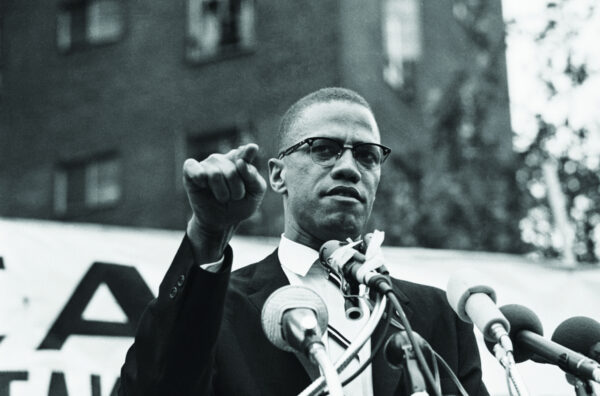Wokey! Wokey!
The controversial adjective has got lost in translation says Hywel Williams

By Hywel Williams
July 3 2023
Just how woke – that call to arms for warriors of justice and fair play – do you think you are? Do you stare into the mirror in the morning and think of new ways of being woke and feel your pulse quickening?
Or do you find the whole woke business irritating, something that just gets in the way of thinking about the problems of the here and now? Surely we can look at how we have addressed racial, sexual and cultural equality, be pleased with our progress and stop fretting?

Then again, maybe you belong to that group, over half the UK population according to recent polls, that doesn’t actually know what woke is – a perfectly rational position, given that it means many things to many people.
History can shed some light on our puzzlement: Woke, and the associated need to be aware of racial prejudice, came to prominence via the Civil Rights Movement in the US in the Fifties and Sixties. Malcom X argued for the creation of a movement centred around specific goals, a general awakening: “You have to wake the people up first, then you’ll get action,” he declared.
This call for an ‘awakening’ had deep roots in the biblical language used by American clergy – black and white – in their sermons. Being ‘awake’ to the fruits of the spirit was always a generalising impulse. And so, ‘woke’, the past participle of ‘wake’, made the journey from verb to adjective and, by the inter-war years, had established itself in black slang. To be woke now meant being quick on the uptake, sharp-elbowed, alive to opportunity and questioning of authority.
So modern British ‘wokery’ is an idea, and cause, imported from the US, a by-product perhaps of our transatlantic alliance. I say this because the impact on Continental Europe has been minimal, while in France for instance, President Macron’s crusade against le wokisme is met with a Gallic shrug.
Over here meanwhile, it has subsumed ‘political correctness’, a phrase that now seems quaintly old fashioned and one used more by those who loathed it – remember the “Political Correctness Gone Mad!” crowd.
"Woke has travelled a long way from being the cry of the oppressed. It is now an ideology, a system that offers its adherents a career structure from which campaigns may be directed against the beliefs, and job security, of the un-woke including many feminists"
Something similar has happened to ‘woke’, a word whose usage is now confined to people who hate and/or fear it. Nobody who is really woke uses the word anymore.
British ‘wokeishness’ has retained the American emphasis on anti-racism but with added dimensions. Now, wagging one’s finger at a past, which should have known better (those who ‘benefitted’ from the slave trade have been particularly censured) is now de rigeur in the study of the humanities.
Our anti-woke movement in Britain finds it difficult to define the object of attack. Sometimes it seems as if the fusillades are directed at anything that reeks of modernity. Requirements for ‘inclusivity’ and ‘diversity’ in the British public sector, often castigated as woke in action, but surely they are nothing more than an attempt at building a more equal society, one that encourages meritocracy, rather than an attempt at assuaging ancestral grief. That has nothing to do with the anti-woke parody.
This being Britain, class also has its part to play. Politically, the British centre-left’s leadership is wary of woke. Whether they find themselves on the left or right ‘working men and women’ (once known as “the working classes”) register strong dislike of what they take to be woke attitudes associated with a sanctimonious liberal elite.
So, woke has travelled a long way from being the cry of the oppressed. It is now an ideology, a system that offers its adherents a career structure from which campaigns may be directed against the beliefs, and job security, of the un-woke (including many feminists). In this late stage of its career, woke has turned illiberal, exultant in its own orthodoxies. This is a familiar historical phenomenon. Christianity – as well as Islam – needs regular reminders of its original identity as the church of the catacombs, the poor and marginal. And Karl Marx on his death bed, appalled by the fascists of the left who claimed his name, murmured: “At least, no one will be able to say that I was a Marxist.”
Our best way forward from this confusion created by overuse of a general term is surely to get rid of it altogether. The original woke have moved on and have other ways of describing their various crusades. The forces of ‘anti-woke’ should learn from that example and ditch the rhetoric. Let’s keep the language clear and thereby keep the lines of communication a good deal clearer.
